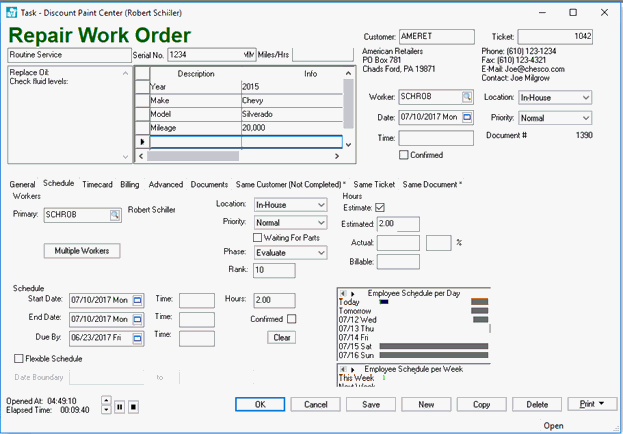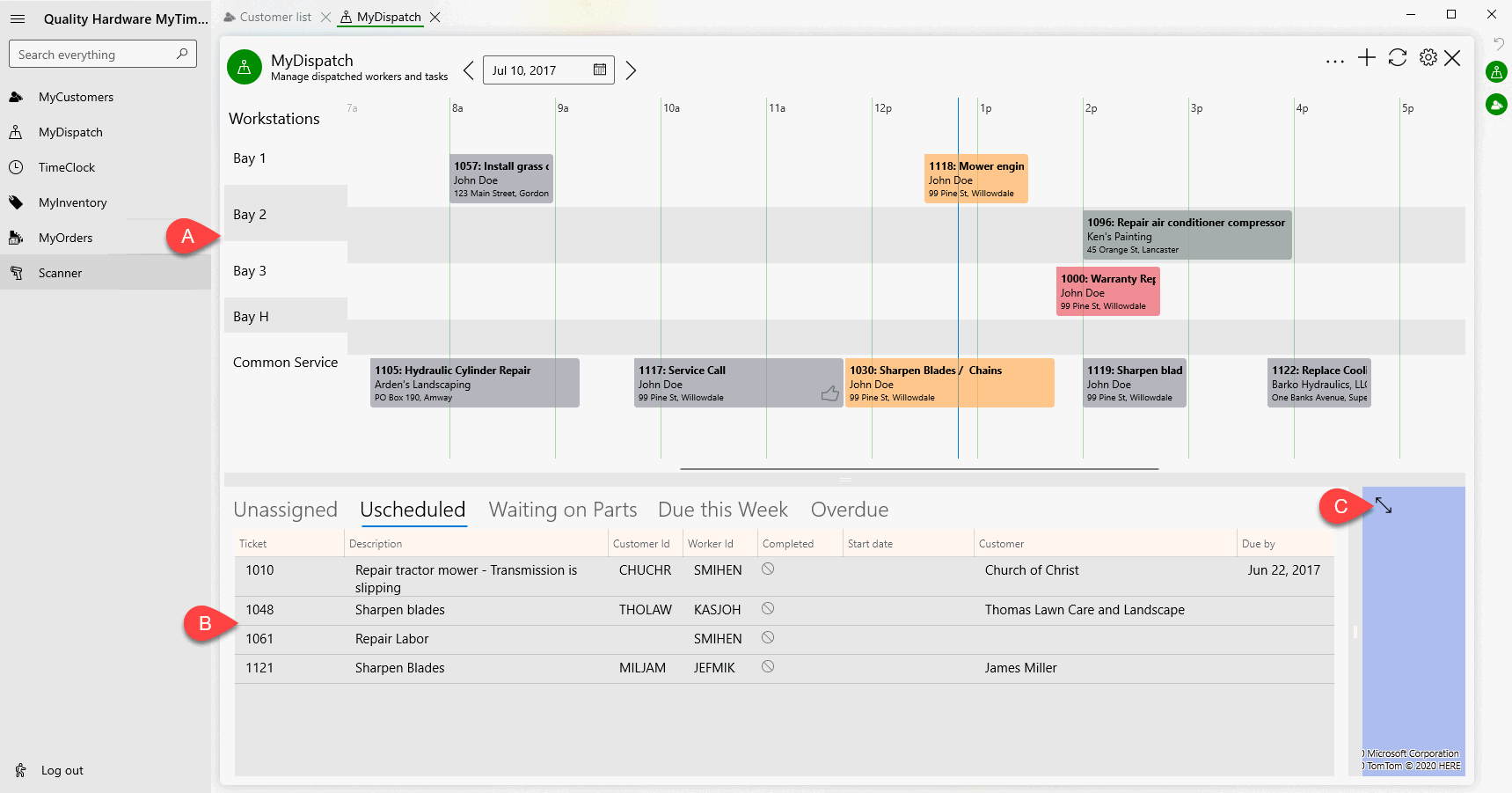
The scheduling settings for a task are found within the Schedule group on the Schedule tab of the task. See example shown below:

The task Priority settings may change the task list color to highlight High or Emergency tasks from normal Priority tasks.
Enable the Waiting For Parts option if the task is on hold until the needed parts arrive.
The optional Phase and Rank settings are used when a pipeline task has multiple phases. Review Pipeline for more details on creating Phase settings or using the pipeline options.
Each one of the following settings, along with the Primary worker, are very important to utilize the MyDispatch scheduling tool:
Changing the End Date will recalculate the Start Date and Time. Changing the end Time will recalculate the Hours instead of changing the Start date and time. Changing the End Date to a date before the Start Date will change the Start Date to equal the End Date.
Note: The Automatically recalculate estimated hours option found in should be disabled to properly estimate time within the EBMS task scheduling tools.
Review Estimated, Billable, and Actual Time for instructions to disable the Estimated time option.
The Confirmed option should be enabled if the schedule values reflect a confirmed appointment. The Confirmed option identifies the task as an appointment. Appointments will show on the schedule view or the charts in the color green. Review Schedule Charts for more details on the schedule charts.
Schedules can be viewed using 2 different methods:
List View: Querying all the open tasks and grouping them by due data, scheduled start date, or employee. This list view option is a good option to list tasks grouped by due date and other query options. Review Customizing Task Views > Creating Queries for instructions on querying the list. Review Customizing Task Views > Creating Task Groups for instructions on grouping tasks by due date or other schedule date.
Schedule View: The schedule view is ideal to determine schedules, available times, and changing task schedules or employees. The schedule view includes calendars to view dates quickly, schedule charts, and employee / Work group options. The color graphs display a visual chart of an employee's schedule or work group schedule. Review Schedule View for more details on this view. Review Schedule Charts for more details on the color scheme or details of the schedule charts. Review Work Groups for more details on the work group scheduling option.
Using MS Outlook: EBMS Tasks can interface with MS Outlook to create appointments within the MS Outlook calendar. Review CRM > Creating Calendar Appointments within the Sales documentation for more details on the EBMS and MS Outlook interface.
Tasks can be temporarily moved to a pending or waiting for parts list by changing the status. Review Task Status Settings for more details on the status of the task.
Review [Sales] CRM > Map to use the map tab tools to view directions or create a route.
The MyDispatch app is a graphical option to scheduling tasks with the following 3 panes:
Schedule pane
Task list pane
Map pane

Review MyDispatch > Overview for details.
Create multiple views including overdue task list, list open tasks group by employee, and an employee schedule view as well as others. Creating a number of different views is a convenient way to view different task lists or schedules. Review Customizing Task Views > Creating Multiple Views for more details on creating new views.